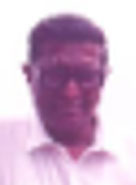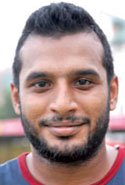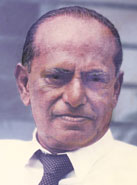Former editor of the Observer, Harold Peiris was a quiet, sober and committed journalist in a profession which is known for flamboyant even rumbustious characters both in their lifestyle and writing.
Harry, as he was known in the profession joined Lake House on graduation from the University of Ceylon at Peradeniya.
He immediately came under the tutelage of that political dynamo Esmond Wickremasinghe, who as Managing Director of Lake House was considered to be a kingmaker of the times. Esmond Wickremasinghe was a press baron in the mould of Lord Beaverbooke of Britain. Esmond played backroom politics effectively with the nation’s most powerful press at his command, comprising mostly of those who had graduated from Peradeniya and Harry was an important member of that team.
Harry was the News Editor of the Ceylon Daily News, the flagship of Lake House, And this post, in those times, it was said, was one of the most tough and gruelling jobs in journalism. News editors are responsible for producing the front page and other inside news pages and to do that even though he had the best team of reporters and photographers of the time at his command, it was indeed a tough assignment.
Directing reporters and photographers who play by their own bohemian rules, while meeting the demands of news editing –up with the latest news, accuracy and meeting deadlines are the daily formidable challenges. His contemporaries say that the methodical Harry went about his challenging job in his own quiet way, unruffled amidst the heat, smoke and din of the Daily News news room.
Harry was in Lake House at a time which is said to have been the most hectic days of the establishment. It was the time the government of Mrs Bandaranaike was defeated by one vote over the Lake House takeover bill. And Harry was said to be at the epicentre. Rarely did he speak of those exciting days.
When Esmond Wickremasinghe moved out of Lake House, Harry went with him and worked for a short spell at the Virakesari, He was soon back at Lake House, this time as Chief Administrative Officer.
This once again was a tough assignment. The CAO in Lake House at that time was the conduit to the Chairman. He had to approve various claims made by journalists and look after the general administration of the editorial departments as well, editors being freed of administrative work. Harry did his job fairly and squarely and it was only when he moved over as editor of the daily Observer as well as the Sunday Observer that his fairness was appreciated.As editor of the Observer he went about his duties in his usual meticulous way. He proof read practically every page and on Saturdays was there till the Sunday Observer went to bed around midnight. He built up a network of Sri Lankan correspondents – mainly ex- Lake House journalists settled abroad and also encouraged middle-ranking and junior journalists to venture into new fields.
Despite all his meticulous ways as an editor, Harry landed himself in one of the biggest controversies of journalism when he found himself in the well of the parliament chamber with his associate editor Mr. Philip Cooray on a charge of breach of parliamentary privilege. A sub-editor mixed up the caption of Jane Fonda in a sailing boat with that of the then Foreign Minister A.C.S. Hameed engaged in some other activity and Mr. Hameed claimed it was a breach of privilege. Those in Lake House at the time were well aware of the kind of political skullduggery that went behind it and how the spineless management stood still while these two journalists were made scapegoats. Harry took the beating he got without a murmur and continued to edit the paper for many more years.
His was a time when Lake House had a surfeit of flamboyant characters such as Tarzie Vitachi, Clarence Fernando, Mervyn de Silva, Ernest Corea, Ira Amerasekera and D.B. Wettasinghe to name a few of the outstanding seniors. Amongst this crowd was Harry, the sober teetotaller, dressed in immaculate white and carrying on in his gentle manner.
Harry will be remembered by his colleagues as a gentleman and a dedicated professional.
Gamini Weerakoon
Our gentle giant
Wasim Thajudeen
A six-footer in height, handsome in many ways, gentle and decent in many other ways, Wasim was a young man with a multitude of good human qualities, be it at home or at work. Wasim’s untimely and premature demise leaves a void among many of his kith and kin, especially his loving parents, sister, brother and us, his closest relatives who adored his gentle and respectful life.
We were closely connected to him all through his life; we adored him, partied with him, enjoying his humour and envied his effervescent vibrant style no one could match.
No one could say anything negative about Wasim ,be it on the field of sports or in his profession. He was an example to the younger generation who followed him upto his last drive to his untimely death.
Wasim, we loved you in life and we will always keep that feeling as long as there is life in our souls.
May Almighty Allah grant you Jainathul Firdous;
Shazna aunty and family, Sister Ayesha and brother Afwan
Advertising guru touched hearts, understood our culture and people, and inspired all who came within his orbit
Soma Ahangama
May 11, 2012 was one of the saddest days of my life, the day I heard of the passing away of Soma Ahangama.
I came to know Soma Ahangama in 1990, when I joined Hatton National Bank to take overall responsibility for setting up the bank’s Marketing Division. From the beginning, I called him Soma, even though he was like a father to me. Over the years, it was like a father-son relationship that I built with him. He was unique – one of the best ever human beings I have come across in my life.
Soma headed a small or medium-sized advertising agency named Soma Ahangama Associates, and HNB had launched a communication strategy suited to the country’s culture. Rienzie Wijetilleke, the managing director at the time, positioned HNB in line with the needs of the people. In this endeavour, Soma was as asset to me.
Not only did he guide me in laying the framework for the Bank’s marketing communications strategy, he also enlightened me on the aspirations of the people, from all walks of life, and on the nature of Sri Lankans. He had a deep knowledge of and empathy for our country and our people. Through his humility and simplicity, he built strong relationships.
Soma had worked in Parliament as a senior editor of the Hansard, and he had met senior politicians and people of all levels. My close association with Soma was more than a business-client relationship. It grew like a father-son relationship. I would go to him on various matters, and his advice was always appropriate and timely. I recall the many hours I spent in Soma’s office discussing business. While jotting down ideas, he would suddenly rise from his chair and go light a cigarette and come back with totally inspiring advice.
His encouragement and advice was the key to moulding me in my early years at HNB. I saw in Soma a simple, humble person with a unique creativity. He touched hearts through his advertising campaigns. I relive these same emotions whenever I revisit some of the advertising work he did for HNB.
He was a devout Buddhist – not the kind of Buddhist who frequents temples dressed in white, or makes a show of building temples and making big donations. He spent his time building up the lives of thousands of less fortunate people. He transformed countless lives through word and deed. He used his money to educate hundreds who could not finance their own education.
About a decade ago, Soma passed the leadership of Soma Ahangama Associates to his second son, Dushantha, and his other sons, Sudharshan and Sanjeeva. Soma Ahangama Associates is one of the country’s leading advertising agencies. The company has acquired an international association and operates under the Saatchi & Saatchi banner.
I continued to maintain a close business relationship with the company through his sons, and my wife Chandrika and I stayed in close touch with the family.
I was to pay him a New Year visit this year on my return from a holiday in Australia. This did not happen. When Dushantha told me of Soma’s passing away, it came as a big shock. It was the saddest news I had ever heard.
Soma wanted a private funeral with only family. He had told his sons that only two other people should be informed, myself and businessman Dinesh Ambani, for whom he had a special affection. Dushantha mentioned this when he called to give the sad news.
In life, God sends people to cross your path, and you must make the most of your moments with these special people. I believe Soma was one such person God sent me. The Book of Proverbs says, “As iron sharpens iron.” Thus, Soma sharpened qualities he brought into my life.
In terms of special personal qualities, Soma stands on a pedestal. It is heartening to note that he has passed these very qualities on to his three sons. He had a wonderful companion for a wife, who stood by him at all times. Soma could not have had a better life-long partner.
Soma, I will miss you.
Chandula Abeywickrema
Tradition and Buddhist humanism hallmarks of his great works of fiction
Martin Wickramasinghe’s 122nd birth anniversary falls on May 29
Martin Wickramasinghe (1891-1976) was the foremost Sinhala novelist of the 20th century and he is still the greatest writer of fiction. His trilogy GamPeraliya, Kaliyugaya and Yuganthaya, and his later novel Viragaya, bear testimony to his powers of social analysis and fictionalization. He was also a literary critic of great perspicacity who could make interesting connections between ideas and trends that one did not think existed. His interests were not confined to literature and literary criticism.
He wrote insightfully on such subjects as anthropology, evolution, art and sculpture, Buddhist philosophy and folk lore. Wickramasinghe was a self-made intellectual who exercised a profound influence on the ways of thinking of his times. He introduced to the Sinhala reader such subjects as anthropology, evolution and Darwinism, genetics at a time when there was hardly a lexicon in which the complex ideas associated with these fields could be purposefully articulated.
Martin Wickramasinghe was an autodidact. It seems to me that four significant intellectual influences fecundated his mind. First, he read avidly western works of literature – Tolstoy, Dostoevsky, Proust, Flaubert, Balzac etc. – and he reflected on them deeply. Second, he read the available critical writings on these novelists and mapped them on to his own modes of critical evaluation and assessment. Third, he read widely the works of Darwin, Spencer, Huxley as well as the ethnographies of scholars like Malinowski, Ruth Benedict. Fourth, his growing up in a peasant Buddhist culture – the values, lifestyle, presuppositions endorsed by it – had a deep and far reaching influence on his mode of thinking.
What is perhaps most noteworthy about Martin Wickramasinghe as a creative writer and a public intellectual is his incredible breath of reading and his ability to make connections between things and events one did not think were there. His rigor, his analytical mind and his arresting subtlety added to the depth of his writing. The eminent British scientist and sinologist, Joseph Needham, who once said of Wickramasinghe that he was “a truly original thinker and writer”, admired the “perspicacity” of his which enabled him to present, “Gogol as a Sannyasi and father Zossima as a bodhisattva.”
In this essay, I wish to focus on one aspect of his approach to tradition, namely, the way he was shaped by Buddhist humanism, and the way he tried to demonstrate the importance of Buddhist humanism as a discourse that should guide our approach to life and literature. If we examine the generality of his literary criticism, one fact becomes evident – he was deeply moved by traditional Buddhist humanism and sought to turn it into a yardstick in evaluating the worth of literary works whether they are classical or modern. The privileged and most positively valorized terms in his critical vocabulary are authenticity – simplicity – unostentatious – realism – human sympathy – humanism – compassion – restraint – self discipline. All these can be directly traced to traditional Buddhist humanism.
The way in which Martin Wickramasinghe sought to connect to tradition, and harness its many sided resources to vitalize Sinhala culture, was via Buddhist humanism.It is the subtle explorations of the human mind, emotions and patterns of behaviour by the authors of the Jataka Stories that fascinated Wickramasinghe the most. As he observed, “The life and society that supplied the materials for the Jataka Stories are very remote in time and space to the life and society from which the two modern novelists (Proust and Dostoevsky) derived material and inspiration for their sadistic tales. But in spite of this remoteness there is an essential similarity between Jataka Stories and the tales of Proust and Dostoevsky in the exploration of some hidden aspects of the human mind.”
He saw very interesting parallels and affinities of interest between the Jataka Stories and Russian novels. He perceived interesting similarities between Prince Myshkin in Dostoevsky’s The Idiot and Jataka Stories. “The character of Myshkin can be justifiably identified with that of the Bodhisattva as depicted in the Jataka Stories. The Bodhisattva represents the Buddhist conception of the character of an imperfect human being striving to attain moral and spiritual perfection. Such a person is called the budding Buddha (buddhankura). Sanskrit works on poetics, enumerating different types of heroes, mention kshanti vira or the hero of universal compassion. The character of the Bodhisattva, as depicted in many Jataka Stories, is of this type, and Prince Myshkin is also of the same type, though western critics refuse to call him a hero.”
The following observation of Joseph Needham captures admirably the comparative impulses of Martin Wickramasinghe and his insightfulness of enforcing connections. “In his study of the Jataka Stories Wickramasinghe brings out again and again their relationship to the problems studied in analytic and introspective psychology of the Freudian era, and he links this similarity with the surprising resemblance that he finds in the novels of the great Russian writers of the nineteenth century. The phenomena of anxiety neurosis, the evil impulses which can rise in man, and the fear of them, the co-existence in proximity in the same mind of the noblest thoughts and the basest urges, all were common property of the Jataka authors and the Russian novelists, who long before the clinical fearlessness of modern psychology, shrank from nothing in their determination to inspect everything of which human nature was capable.” This ability of Martin Wickramasinghe is unsurpassed, in my judgment, by any other Sinhala writer before or after.
Another aspect that marks a difference in Wickramasinghe’s approach to a form of humanism based on Buddhist worldview from Eurocentric humanism is the emphasis given to the idea of karma. The Jataka Stories deal with this world and the previous world, between life and death and life. The idea of karma is general to the understanding of the traffic between the two worlds. Commenting on this aspect of Wickramasinghe’s writing, Professor Joseph Needham made the following observation. “Martin Wickramasinghe points out that the evil impulses, murderous thoughts, suicidal tendencies, etc. in the characters of the Jataka corpus were all accounted for by its writers in terms of the doctrine of karma, or ‘spiritual heritage’, man’s feelings and instincts being considered the accumulated inheritance from the former bundles of ‘skandas’ connected with him or (in popular Buddhist thought); ‘his’ own previous lives.
Wickramasinghe suggests that the theory of karma was what led the Buddhist fabulists to their proto-psychoanalytic approach and intimates that it was not so far wrong after all since modern science has recognized the existence of atavistic tendencies arising from the animal past of mankind.
Thus the unplumbed depths of human psychological constitution contain much of the beast, much of the most primitive ape-man, and in so far as karma means this atavistic load still present from the past it was a fair anticipation of a valid scientific idea arising from our modern knowledge of organic evolution.” The idea of karma and how it functions within the Buddhist Jataka Stories make it clear that Wickramasinghe’s advocacy of a Buddhist humanism cannot be contained within the standard, and falsely universalized, form of Eurocentric humanism.
I have discussed Martin Wickramasinghe’s attitude to humanism at some length because in recent times certain critics have sought to apply uncritically the charges levelled against humanism to his work. There is not a single and unitary humanism, but there are many, and Wickramasinghe’s approach demonstrates the need to recognize the multiplicities and pluralities within the broad domain of humanism.
Professor Wimal Dissanayake
|





